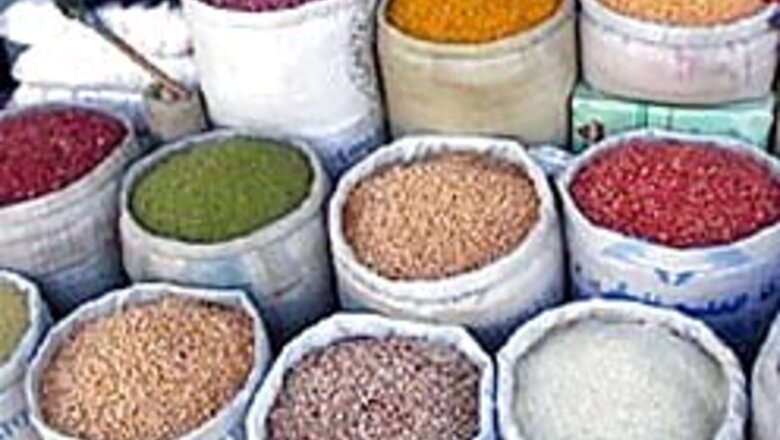
views
Mumbai: Prices of red and black gram are likely to move up in Indian markets due to a possible delay in the shipment from Myanmar, where a powerful cyclone disrupted normal life, traders and analysts said.
Myanmar is a leading exporter of pulses in South Asia. At least 15,000 people have been killed and 30,000 people are missing from the cyclone that tore through Myanmar's Irrawaddy delta last weekend.
"Shipments will certainly be delayed due to the cyclone by 20 days to one month," said Prem Kogta, a dal miller based in Jalgaon, Maharashtra, who has a procurement centre in Myanmar.
In the Delhi spot market, prices of major pulses have risen by about 11 percent since January. In Latur, Maharashtra, a major trading centre for pulses, tur price was trading at Rs 2,700 per 100 kg, while urad was quoted at Rs 2,200 per 100 kg.
Tur and urad prices should go up as Myanmar is a leading exporter of these two commodities, said Ashwini Bansod, an analyst at M F Global Commodities India Ltd. Harvesting of tur and urad was just completed in Myanmar, said miller Kogta.
Arrivals from the Indian crop starts only from October. "It is difficult to calculate by how much prices will go up. Everything depends on the quantity getting delayed," said Nitin Kalantri, a trader based in Latur, Maharashtra.
In 2006/07 out of total pulses imports, India imported 27 percent from Myanmar, tur and urad usually sourced in May and June. "This is an import season. So once news spreads that imports are not coming in, urad prices may go up by Rs 200 to Rs 300 per 100 kg," said Chowda Reddy, an analyst at Karvy Comtrade.
India is the world's biggest producer, consumer and importer of pulses. The country made pulses import duty-free while battling rising prices, and banned export in 2006, which is in place till March 2009.
















Comments
0 comment